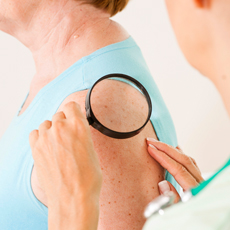
French researchers recently identified the cellular and molecular mechanisms involved in maintaining skin cells and skin healing in advanced years. The discovery could lead to new innovations in wound care and skin-integrity preservation, they say.
Investigators, led by Chloé Féral, Ph.D., of the French Cancer and Aging Research Institute at the Université Sophia Antipolis in Nice, found that the gene CD98hc is critical to the preservation of healthy skin among the elderly.
“CD98hc appears to be necessary for rapid and effective skin renewal. Its reduced expression, observed in vivo in elderly mice, confirms its role in maintaining [skin] tissues, which are disturbed with age,” Féral said. Full findings appeared in the Journal of Experimental Medicine in January.
Through their work with mice, the researchers found CD98hc helps skin renewal by recruiting needed skin cells, such as in healing a wound. In a 2009 study, it was found CD98hc enables the proliferation of B cells, an important part of the immune system.
Both studies could be particularly helpful to providers, as many residents are beset by non-healing wounds.
Féral’s study shows that the epidermis, the surface layer of the skin, is mainly composed of keratinocytes cells, which, in humans, are renewed continuously over a 21-day cycle. These cells are located on a membrane made up of components from the extracellular matrix that provides the junction with the dermis.
From the March 01, 2013 Issue of McKnight's Long-Term Care News




